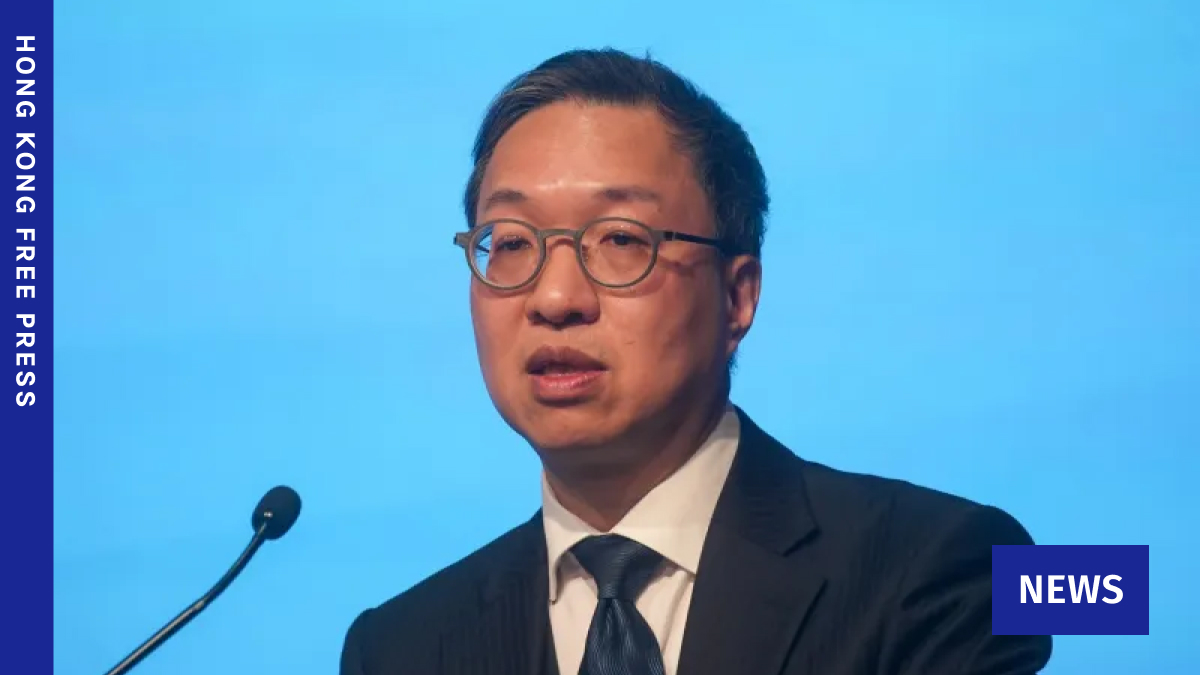“Soft resistance” involves using false statements to create misunderstanding about the mainland Chinese and Hong Kong authorities, Secretary for Justice Paul Lam has said.
Speaking to local media outlets in interviews published on Monday, the fifth anniversary of the Beijing-imposed national security law, Lam said methods of soft resistance may not always be illegal – but that did not mean they would not harm society.
He said there were three main elements of soft resistance – making false or misleading statements; expressing them irrationally and with emotional bias; and with the intention of creating misunderstanding about the Chinese and Hong Kong governments and their policies.
Lam’s interview marks the first time authorities have explained what soft resistance is. Since 2021, Chinese and Hong Kong officials have cited the phrase as a threat to national security, but have not been specific about what it means.
The justice secretary said soft resistance was difficult to define, and the government would not use the label arbitrarily.
Ahead of the fifth anniversary of the Beijing-imposed national security law, high-ranking officials have given media interviews addressing “soft resistance” in areas ranging from arts and culture to development and medicine.
The term was first used in 2021 by the then-director of China’s Liaison Office in Hong Kong Luo Huining, who warned that Hong Kong must regulate “soft resistance” in addition to cracking down on “hard resistance.”
Explainer: What is ‘soft resistance’? Hong Kong officials vow to take a hard line against it, but provide no definition
Last week, Chief Executive John Lee said in a press conference that soft resistance is “real” and is “lurking across different areas and different sectors.”
‘Different views’ still allowed
Speaking to HK01, Lam said citizens can have “different views” about the government, including negative views, but such opinions must be based on “objective facts.”
Soft resistance cannot be condoned, he told the media outlet.
“If it creates a negative impact, it would affect society’s overall stability, hinder the building of consensus in society, and stand in the way of Hong Kong’s collective effort of driving development,” he said in Chinese.
Just because not all soft resistance methods may be illegal, this did not mean that society could ignore them, he said.
“Not all issues in society should be addressed by legal means. [Legal means] are also not always the most effective way of handling [matters],” Lam said.
Beijing imposed a national security law in Hong Kong on June 30, 2020 following a year of pro-democracy protests and unrest over a controversial extradition bill.
It criminalised subversion, secession, collusion with foreign forces and terrorist acts, which were broadly defined to include disruption to transport and other infrastructure.
The move gave police sweeping new powers, alarming democrats, civil society groups and trade partners, as such laws have been used broadly to silence and punish dissidents in China.
However, authorities say it has restored stability and peace to the city.
Support HKFP | Policies & Ethics | Error/typo? | Contact Us | Newsletter | Transparency & Annual Report | Apps
Help safeguard press freedom & keep HKFP free for all readers by supporting our team
